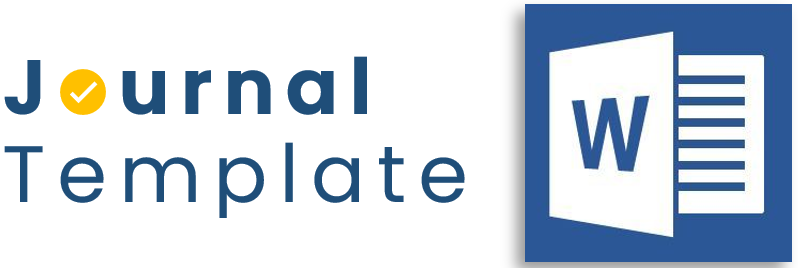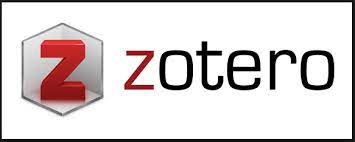THE ROLE OF SCHOOL PRINCIPAL LEADERSHIP IN TEACHER MOTIVATIONTHE WORK OF HONORARY TEACHERS AT VOCATIONAL HIGH SCHOOLKARTIKA XX-I MAKASSAR
Keywords:
The Role of School Principal Leadership, Motivation of Honorary TeachersAbstract
ObjectiveThis research aims to determine the role of the principal's leadership towards the work motivation of honorary teachers at SMK KARTIKA XX-I Makassar. This research uses a qualitative research method.The informants in the research the principal and 2 honorary teachers at SMK KARTIKA XX-I.Technique data collection methods used include interviews, observations, and documentation.The data analysis technique used is descriptive analysis qualitative.The research results show that the role of the principal's leadership the school fulfills its role as an educator, manager, supervisor, and motivator who helps increase the work motivation of honorary teachers, both through internal and external motivation approaches.This research highlights the importance of implementing adaptive and comprehensive leadership strategies to encouraging the spirit and performance of honorary teachers in the educational environment.
Downloads
References
Arianti, A. (2019). The role of teachers in increasing student learning motivation. Didaktika: Journal of Education, 12(2), 117-134.
Caksana, N. P. E. (2019). The Effect of Principal Leadership Style and Work Environment on Teacher Performance with Work Motivation as an Intervening Variable at Sman 1 Tulungagung. Journal of Applied Management Research (PENATARAN), 4(1), 82-92.
Fauzan, G. A. (2021). Honorary Teachers in a Circle of Injustice. Journal on Education, 4(1), 197-208.
Ghufron, G. (2020). THEORIES OF LEADERSHIP: Leadership Theories. Phenomenon, 19(1), 73-79.
Hamzah, M. I., & Sarwoko, E. (2020). Leadership, organizational culture and performance: the mediating role of work motivation. Journal of Modernization Economics, 16(1), 41-53.
Kadarsih, I., Marsidin, S., Sabandi, A., & Febriani, E. A. (2020). Principal leadership roles and tasks in elementary schools. Edukatif: Journal of Education Science, 2(2), 194-201.
Khair, H. (2019). The influence of Leadership and compensation on job satisfaction through work motivation. Maneggio: Scientific Journal of Master of Management, 2(1), 69-88.
Kurniawati, E., Arafat, Y., & Puspita, Y. (2020). The Role of Principal Leadership in Improving Education Quality through School-Based Management. Journal of Education Research, 1(2), 134-137.
Madyarti, G. M. (2021). The Role of Leaders in Motivating and Improving Employee Performance. Proceeding: Islamic University of Kalimantan.
Oktarina, W., Syamsir, M. S., Hadijah, A., Wahyuni, S., & Arianti, P. (2022). The Principal's Leadership Role in Improving Teacher Performance at SLB Permata Bunda, District VII Koto Sungai Sariak. ENGGANG: Journal of Education, Language, Literature, Arts, and Culture, 2(2), 240-250.
Paizal, I., Siraj, A., & Mania, S. (2019). The Relationship between Madrasah Head Leadership Style and Teacher Performance at Madrasah Aliyah Pondok Pesantren Al- Ikhlas Ujung Bone. Journal of Islamic Religious Education Al-Thariqah, 4(1), 21- 37.
Parashakti, R. D., & Setiawan, D. I. (2019). Leadership Style and Motivation on Employee Performance at Bank BJB Tangerang Branch. Samudra Journal of Economics and Business, 10(1).
Rosdiana, D., Rahmawati, A., & Novitasari, D. (2023). The Effect of Leadership and Organizational Culture on Teacher Performance: Narrative Literature Review. Journal of Information Systems and Management (JISMA), 2(3), 41-48.
Sahabuddin, M., & Syahrani, S. (2022). Educational leadership from the perspective of education management. Educational journal: General and Specific Research, 2(1), 102-112.
Salsabilla, B., Lestari, F. I., Erlita, M., Insani, R. D., Santika, R., Ningsih, R. A., ... & Mustika, D. (2022). Types and Styles of Educational Leadership. Tambusai Education Journal, 6(2), 9979-9985.
Sanjani, M. A. (2020). The duties and roles of teachers in the process of improving teaching and learning. Serunai: Scientific Journal of Education Sciences, 6(1), 35-42.
Sari, E., Sihaloho, R., Sutomo, S., & Arum, W. S. A. (2021). Improving teacher commitment through optimizing principal leadership. Journal of Jendela Pendidikan, 1(04), 250-264.
Sarta, S., Zohriah, A., & Fauzi, A. (2023). Analysis of the Path Goals Leadership Model of Leadership Studies in Educational Institutions. Journal on Education, 6(1), 2508-2514.
Setiawan, A., Andrian, D., & Asta, S. W. (2019). Application of Research Methodology and Statistics. Yogyakarta: Parama Publising.
Simarmata, R. H. (2020). Efforts to increase the work motivation of elementary school teachers. Journal of education management Bahana, 2(1), 654-660.
Solihin, E., Giatman, M., & Ernawati, E. (2021). The Impact of Principal Leadership Style on Teacher Job Satisfaction and Work Motivation. Scientific Journal of Education and Learning, 5(2), 279-286.
Syafriani, Y., Ramadhani, S., Harahap, F. A., Zuraira, T., & Fadilla, A. S. (2022). Teachers' Roles and Duties in Curriculum Management. Edumaspul: Journal of Education, 6(1), 572-575.
Syahril, S. (2019). Theories of leadership. Ri'ayah: Journal of Social and Religious Affairs, 4(02), 208-215.
Uno, H, B. (2019). Motivation Theory and Its Measurement: An Analysis in the Field of Education. Jakarta: PT Bumi Aksara.
Wardany, D. K. (2020). Contribution of Leadership and Professional Competence to Teacher Performance. Journal of Madinasika Management and Teaching, 1(2), 73-82.











